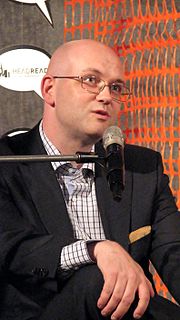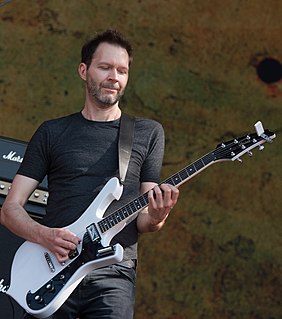A Quote by Karen Joy Fowler
Related Quotes
Genocide is not just a murderous madness; it is, more deeply, a politics that promises a utopia beyond politics - one people, one land, one truth, the end of difference. Since genocide is a form of political utopia, it remains an enduring temptation in any multiethnic and multicultural society in crisis.
I shall speak of how melancholy and utopia preclude one another. How they fertilize one another... of the revulsion that follows one insight and precedes the next... of superabundance and surfeit. Of stasis in progress. And of myself, for whom melancholy and utopia are heads and tails of the same coin.
I'm fascinated by the First World War because it was supposed to be the war to end all wars, and it was the biggest conflagration that this particular planet had seen. There was a lot of talk about utopia and how it was possible, and then, because of these events that for one reason or another couldn't be stopped, the idea of utopia went out the window.
What begins as a Utopian vision, always - always - ends in bloodshed. Because you have to force a utopia on a free people. Free people want to pursue their own happiness, but a one-size-fits-all approach requires herding the free, against their will, into the state's idea of what's right. Then it's not utopia.
I grew up in a utopia, I did. California when I was a child was a child's paradise, I was healthy, well fed, well clothed, well housed. I went to school and there were libraries with all the world in them and after school I played in orange groves and in Little League and in the band and down at the beach and every day was an adventure. . . . I grew up in utopia.
Technical Utopias-flying, for example-have been achieved by the new science of nature.The human utopia...a united new humankind living in solidarity and peace, free from economic determination and from war and class struggle-can be achieved, provided we spend the same energy, intelligence, and enthusiasm on the realization of the human Utopia as we have spent on the realization of our technical Utopias.
I don't wish to defend everything that has been done in the name of Utopia. But I think many of the attacks misconceive its nature and function. As I have tried to suggest, utopia is not mainly about providing detailed blueprints for social reconstruction. Its concern with ends is about making us think about possible worlds. It is about inventing and imagining worlds for our contemplation and delight. It opens up our minds to the possibilities of the human condition.



































